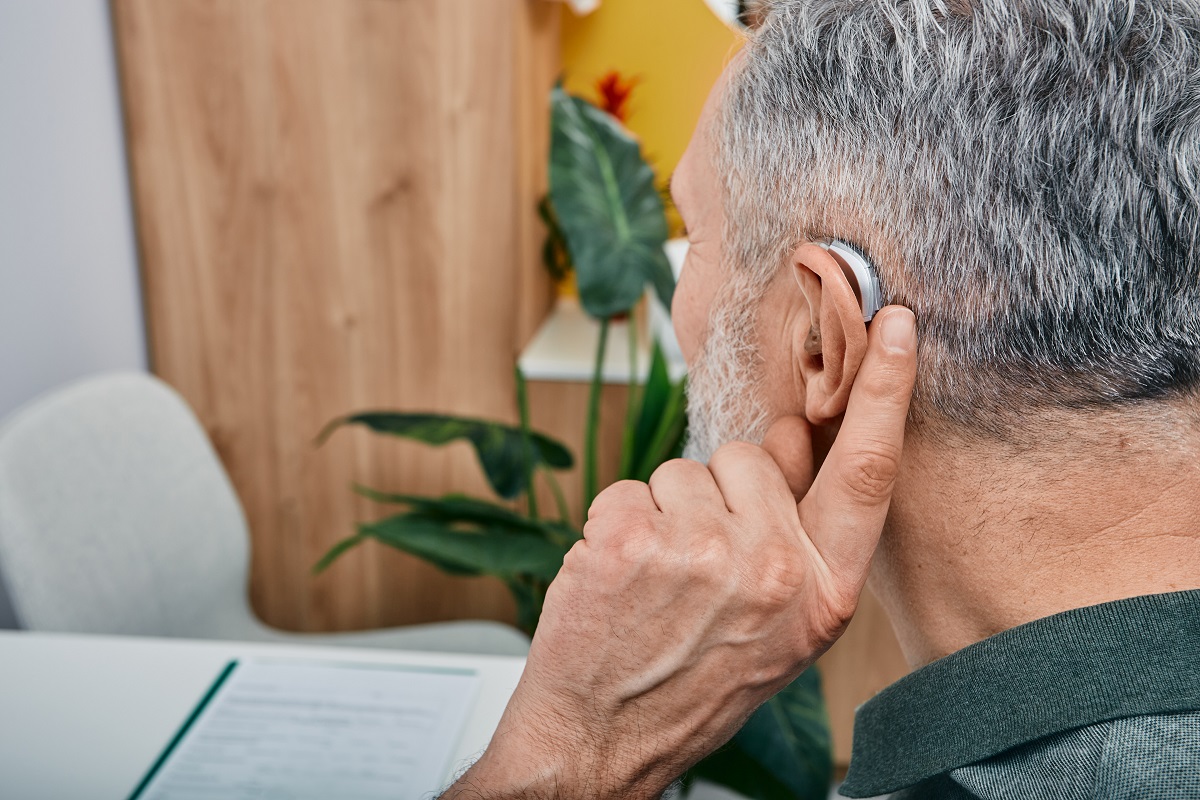Ensuring that Age-Related Hearing Loss is Treated

As we age, our bodies go through various changes, some of which can have a significant impact on our health and wellbeing. One of the most common changes that many older adults experience is hearing loss. According to the National Institute on Deafness and Other Communication Disorders (NIDCD), about one in three people between the ages of 65 and 74 have hearing loss, and nearly half of those over the age of 75 have difficulty hearing. In this blog post, we’ll explore why older adults are more likely to have hearing loss and what can be done to address this issue.
Age-Related Hearing Loss
Hearing loss is a partial or total inability to hear sounds. It can be caused by a variety of factors, including exposure to loud noises, certain medical conditions, and genetics. Hearing loss can be temporary or permanent and can affect one or both ears. It is essential to identify and address hearing loss early, as it can have a significant impact on a person’s quality of life.
Age-related hearing loss, also known as presbycusis, is the most common type of hearing loss in older adults. Presbycusis occurs gradually over time and affects both ears equally. It is usually caused by changes in the inner ear or the auditory nerve, which can affect the ability to hear high-pitched sounds.
The risk of developing age-related hearing loss increases with age, with more than half of people over the age of 75 experiencing some degree of hearing loss. Other risk factors for age-related hearing loss include a family history of hearing loss, exposure to loud noises over time, and certain medical conditions, such as high blood pressure and diabetes.
How the Ear Changes with Age
To understand age-related hearing loss, it’s important to understand how the ear works. The ear has three main parts: the outer ear, middle ear, and inner ear. Sound waves enter the ear through the outer ear and travel through the ear canal to the eardrum, causing it to vibrate. The vibrations then travel through the middle ear to the inner ear, where they are converted into electrical signals that the brain can interpret as sound.
As we age, the ear undergoes various changes that can impact the way we hear. The ear canal may become narrower, making it harder for sound waves to reach the eardrum. The eardrum may become less flexible, reducing its ability to vibrate and transmit sound. Additionally, the tiny hair cells in the inner ear that are responsible for transmitting sound to the brain may become damaged or die off, leading to hearing loss.
While age-related hearing loss is the most common type of hearing loss in older adults, it’s not the only cause. Other health conditions, such as high blood pressure and diabetes, can also affect hearing. Certain medications, such as antibiotics and chemotherapy drugs, can also cause hearing loss. Exposure to loud noises over time can damage the ear and lead to hearing loss as well.
Consequences of Untreated Hearing Loss in Older Adults
Untreated hearing loss can have a significant impact on a person’s quality of life. Socially, hearing loss can lead to isolation and feelings of loneliness, as it becomes more challenging to communicate with others. Emotionally, hearing loss can lead to depression and anxiety, as well as a decreased sense of self-worth.
Health-wise, untreated hearing loss has been linked to an increased risk of falls, cognitive decline, and dementia. It can also make it more challenging to manage other health conditions, such as diabetes and high blood pressure.
Prevention and Management of Hearing Loss in Older Adults
While age-related hearing loss cannot be prevented entirely, there are steps that older adults can take to reduce their risk of developing hearing loss. These include avoiding exposure to loud noises, wearing ear protection when necessary, maintaining good overall health, and managing any underlying health conditions.
If you’re experiencing hearing loss, there are several treatment options available. One option is hearing aids, which can amplify sound and improve your ability to hear. There are many different types of hearing aids available, so it’s important to work with an audiologist to find the right fit for your needs.
At our hearing practice, we specialize in providing comprehensive hearing care for older adults. Our team of audiologists can help diagnose and treat hearing loss, as well as provide advice on how to prevent further hearing loss. If you’re experiencing hearing loss or are concerned about your hearing, we encourage you to make an appointment with us today. Taking action early can help you preserve your hearing and improve your quality of life.
